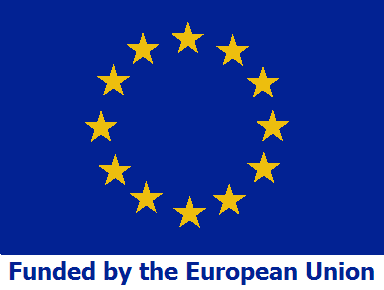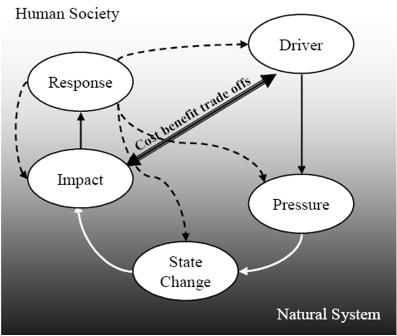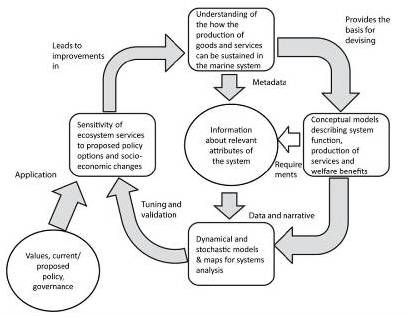KNOW SEAS
Knowledge-based Sustainable Management for Europe‟s Seas
Periodo: April 2009 – June 2013




Introduction
The first decade of the Millennium has been a time of rapid development of new policy and legal frameworks to ensure the sustainable development of Europe‟s seas and these efforts have culminated in the endorsement of the European Maritime Policy (the “Blue Book”) and the European Marine Strategy Framework Directive (MSFD). These first steps were a matter of urgency; on one hand there are new opportunities to exploit Europe‟s marine environment but on the other there is substantial evidence of its continued degradation. This is happening despite measures taken at different scales to resolve problems such as pollution, overfishing or poor habitat protection.
Unlike the existing policy framework, the new one is based on the Ecosystem Approach, a management concept that focuses on the relationship between human society and the ecosystems that supports it. This new approach offers new opportunities for sustainable use of the sea but requires better understanding of how marine socio-ecological systems operate, how they generate goods and services, how well these benefits are captured and sustained, how human degradation of the systems affects human welfare and generates costs, and the complex social relations and value systems underpinning human governance of marine systems. It is also vital to devise clear mechanisms for applying all of this information to make practical decisions on the management of complex marine systems. The proposed research is designed to improve this integrated knowledge base and to lead to practical products for decision makers.
In approaching this challenge, we are proposing to employ a „systems thinking‟ methodology that we have developed following previous research and in our practical engagement with the development of the MSFD and the consultation process on the EU Marine Policy Green Paper. Previous research (e.g. European Lifestyles and Marine Ecosystems, ELME, FP6) focused on the regional seas scale and developed innovative multidisciplinary models that were employed to generate simulations of the future state of Europe‟s seas. This proposal will improve understanding of coupling between social and ecological systems and create new knowledge and tools to support the practical implementation of the Ecosystem Approach as well as widening and deepening the knowledge base from previous projects. We propose to ensure the practical application of the research by developing and testing it in close communication with stakeholders including existing regional seas secretariats, as well as subjecting the findings to rigorous independent peer review.
Objectives
This comprehensive overall objective is to develop a comprehensive scientific knowledge base and practical guidance for the application of the Ecosystem Approach to the sustainable development of Europe’s regional seas. The objective will be delivered through a series of specific sub-objectives:
- Enhanced conceptual basis for the Ecosystem Approach to management (EAM)
- Assessment of the consequences of human pressures on the water quality and ecology of Europe‟s Seas
- Evaluation of the benefits derived from goods and services provided by coastal and shelf areas
- Evaluation of the costs of human changes to water quality and ecology including loss of benefits
- An institutional and social analysis including values and perceptions, governance structures, conflicts of interest and trade-offs between regions/actors
- An analysis of the cost of Adaptive Management strategies, including the necessary assessment and monitoring
- A scientifically based suite of tools to assist policy makers and regulators with the practical application of the Ecosystem Approach
WP Leaders
- WP1 Project Management (SAMS)
- WP2 Policy Frame (SAMS)
- WP3 Causes and Consequences of Ecosystem Change (VU)
- WP4 Analysis of Costs and Benefits (UoB)
- WP5 Institutional and Social Analysis (GKSS)
- WP6 Assessment Toolbox (CSIC)
- WP7 Baltic Sea EEZs (SYKE)
- WP8 Black Sea EEZs (UiB)
- WP9 Mediterranean Sea EEZs (CNR-IIA)
- WP10 North Sea/ NE Atlantic EEZs (Cefas)
Research Strategy
The DPSIR (Driver-Pressure-State-Impacts-Response) model is a useful conceptual starting point for the analysis of a coupled social and ecological system (Figure 1). Drivers are largely economic and socio-political (industrial or agricultural development, trade, regulations, subsidies, etc.) and often reflect the way benefits are derived from ecosystem goods and services; Pressures are the ways these Drivers burden the environment (agricultural run off of nutrients, pollution discharges, bottom trawling, introduction of alien species, etc.); State change is a measure (or proxy) of the consequences of Pressures on species or ecosystems; Impacts are measures of changes (the „costs‟) to human welfare as a result of State changes (including indirect effects such as the knowledge that a species is endangered); and Response is the way society attempts to reduce Impact or compensate for it. The diagram highlights how most policy decisions are a trade off between the cost (social and economic) of Impacts, and the benefits derived from continued socio-economic activity. The Responses pose additional compliance costs that should also be considered in an overall analysis.
Marine systems are inherently highly complex, operate at a wide range of overlapping spatial and temporal scales, are interconnected, heavily influenced by human pressure, often display non-linear cause-effect relationships (some of which may be reversible) and have „memory effects‟ (present system state may be a legacy of past practices). Attempts to manage parts of the system have often proven unsuccessful because of these basic properties and the difficulty to predict the full outcomes of human intervention. An ability to contextualise empirical data within an evolving conceptual understanding is important for maintaining information flow to managers. Figure 2 outlines the basic systems approach that is used by KnowSeas in order to develop working models at various scales.
WP9 Mediterranean EEZs description
The Mediterranean Sea is extensively impacted by anthropogenic activities. Chemical pollution, increasing maritime transport and climate change are key Pressures causing environmental degradation of marine systems at both regional sea and local scales. Throughout the Mediterranean, extensive coastal development as a result of increasing urbanisation and tourism has resulted in habitat loss and decreased biodiversity. Apex predators have been overfished basin-wide, contributing to trophic changes, while expanding mariculture and intensive fish farming have been associated with the introduction of invasive species and pathogens, localised habitat loss and eutrophication. As in other European seas, climate change is an emerging issue in the Mediterranean which requires further investigation.
Political responses to these issues are complex as social trends, lifestyles and governance vary regionally throughout Mediterranean countries. However, these states are aware of their responsibility to preserve and develop the region in a sustainable way, and recognise the aforementioned threats to the marine environment. Several political actions have been launched to that effect including the Action Plan for the Protection and Development of the Mediterranean Basin (MAP), the Convention for the Protection of the Mediterranean Sea against Pollution (the “Barcelona Convention”), and the Protocol for the Protection of the Mediterranean Sea against Pollution from Land-based Sources. There is also a variety of EU Directives which address protection and conservation, such as the EU Birds Directive (70/409/EU) and the EU Habitats Directive (92/43/EU).
Within KnowSeas, the Mediterranean case study will focus on i) the characterisation of temporal and spatial variations of Pressures on Mediterranean ecosystems driving changes in environmental State and associated costs in terms of human welfare and quality of ecosystems (in conjunction with WP3); ii) prioritization of Pressures, with particular reference to climate change, maritime transportation and chemical pollution; iii) the assessment of the spatial distribution of chemical contaminants entering the sea with changing scenarios of climate change and chemical pollution as well as different degree of maritime transportation use; iv) the identification of possible solutions to EEZ definition in the Mediterranean, through the evaluation of scale mismatches that could constrain effective implementation of the Marine Strategy Framework Directive and Integrated Maritime Policy (e.g. transboundary pollution, migratory species) and v) the assessment of the quality of environmental media, with a focus on water quality and water-atmosphere interactions (i.e. atmospheric deposition of contaminants to sea-surface). An in-depth assessment of the effects of shipping, chemical pollution and climate change will be performed on the Gulf of Lions, a data-rich subregion affected by these key Pressures.
Partnership
- Scottish Association for Marine Science (SAMS), Scotland – COORDINATORE
- Alfred Wegener Institute for Polar and Marine Research (AWI), Germany
- Baltic Nest Institute, Stockholm University (BNI), Sweden
- Centre for Environment, Fisheries and Aquaculture Science (CEFAS), UK
- Institute for Atmospheric Pollution of the Italian Research Council (CNR-IIA), Italy
- Consejo Superior de Investigaciones Científicas, Barcelona (CSIC-A), Spain
- Consejo Superior de Investigaciones Científicas, Barcelona (CSIC-B), Spain
- Deltares, Netherlands
- Envison Management Ltd, ENVISON, UK
- Coastal and Marine Union (EUCC), Netherlands
- Forschungszentrum Geesthacht GmbH (GKSS), Germany
- Institute for European Environmental Policy (IEEP), UK
- Instituto do Mar (IMAR), Portugal
- Institute of Oceanology, Bulgarian Academy of Sciences (IOBAS), Bulgaria
- Netherlands Institute of Ecology (KNAV), Netherlands
- Environmental Systems Analysis Lab, University of Padua (LASA), Italy
- Megapesca Lda (MEGAPESCA), Portugal
- Middle East Technical University (METU), Turkey
- Norwegian Institute Air Research (NILU), Norway
- Sir Alister Hardy Foundation for Ocean Science (SAHFOS), UK
- University of Plymouth – Marine Institute (UoP-MI), UK
- Southern Denmark University (SDU), Denmark
- Sea Fisheries Institute (SFI), Poland
- Finnish Environmental Institute (SYKE), Finland
- University of Bretagne Occidentale (UBO), France
- University College Cork (UCC), Ireland
- University of East Anglia (UEA), UK
- University of Bergen (UiB), Norway
- Università Ca’ Foscari di Venezia (UNIVE), Italy
- University of Bath (UoB), UK
- VU University Amsterdam, Institute for Environmental Studies (VU), Netherlands

Sergio Cinnirella
CNR-IIA Leader & WP-9 Leader
Laurence Mee
Project Coordinator
